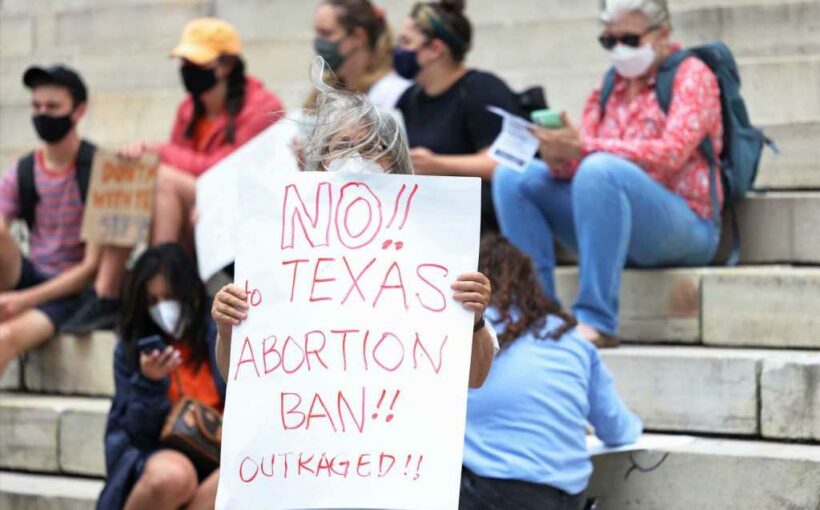- The Department of Justice is expected to announce a lawsuit against Texas on Thursday over the state's restrictive abortion law, according to NBC News.
- The lawsuit will come after the Supreme Court, stacked 6-3 with conservative justices, last week refused to block the controversial abortion law from taking effect.
- President Joe Biden had blasted the high court's overnight ruling, saying it "insults the rule of law."
The Department of Justice is expected to announce a lawsuit against Texas on Thursday over the state's restrictive abortion law, according to NBC News.
The lawsuit will come after the Supreme Court, stacked 6-3 with conservative justices, last week refused to block the controversial abortion law from taking effect.
President Joe Biden had blasted the high court's overnight ruling, saying it "insults the rule of law." Attorney General Merrick Garland said at the time that the Justice Department was "evaluating all options to protect the constitutional rights of women, including access to an abortion."
Garland is expected to announce the civil lawsuit against Texas during a press conference at 2:30 p.m. ET.
CNBC Politics
Read more of CNBC's politics coverage:
- Yellen warns Pelosi that extraordinary measures to hold off debt limit will run out in October
- Supreme Court will resume in-person arguments this fall after switching to phones during Covid
- Here's what to know about the California recall election that could remove Gov. Gavin Newsom
The law, which was signed into law in May by Republican Gov. Greg Abbott, prohibits abortion after the detection of a fetal heartbeat, which usually occurs around the sixth week of pregnancy. At that time, many women are still not aware that they have become pregnant.
The legislation, S.B. 8, includes an exception for medical emergencies, but not for pregnancies resulting from rape or incest. Abbott this week defended the law, and said his goal is to "eliminate rape so that no woman, no person, will be a victim of rape."
Rather than put public officials or law enforcement in charge of enforcing the ban, the law empowers private citizens to file civil lawsuits against abortion providers or anyone who "aids or abets" in an abortion after the six-week threshold. Those lawsuits can yield at least $10,000 in "statutory damages" per abortion.
Critics say those rules effectively establish a bounty system in order to sidestep the abortion rights enshrined in the landmark 1973 Supreme Court case Roe v. Wade.
But the Supreme Court, in a 5-4 ruling, denied an emergency request from abortion-rights advocates for a temporary injunction to stop the abortion law from taking effect on Sept. 1.
The majority, which included all three justices appointed by former President Donald Trump, wrote in a one-paragraph ruling that the petitioners had "not carried their burden" on complex procedural questions raised in the case.
But they noted that "this order is not based on any conclusion about the constitutionality of Texas's law."
Justice Sonia Sotomayor wrote in dissent that Texas had effectively "deputized the State's citizens as bounty hunters, offering them cash prizes for civilly prosecuting their neighbors' medical procedures."
This is breaking news. Please check back for updates.
Source: Read Full Article
